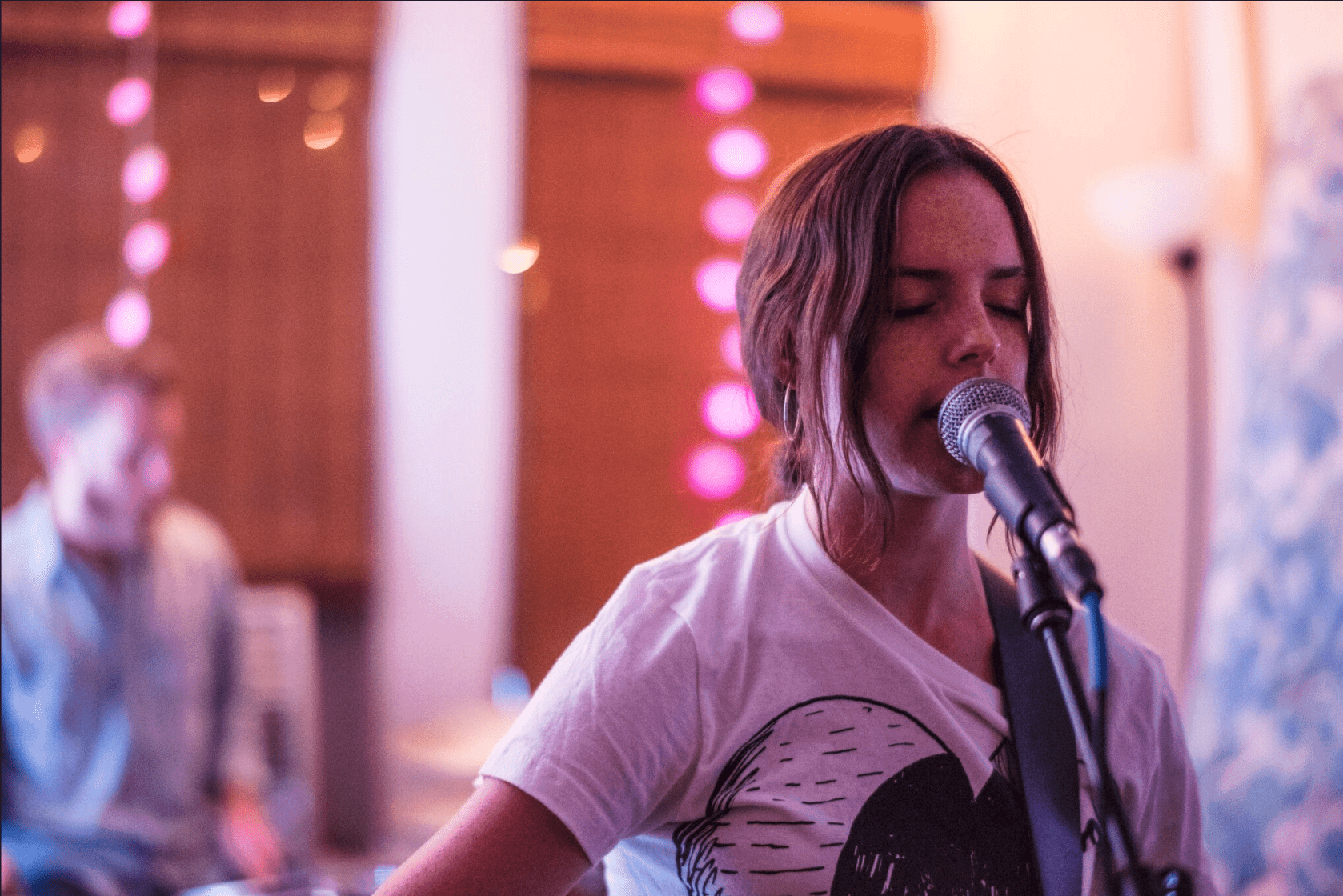Hannah McCormick: Motherhood, Place, and Vegetables
By Zoe Fitch
Mississippi is where the hum of cicadas and frogs, the howl of coyotes, and the flutter of red robins, mockingbirds, and hummingbirds alike are the sounds of home. This place serenades until the song becomes your anthem. The connection between person, soul, and land is inevitably found through experience. The kudzu does not just take over the landscape but also your environment and being; the domestic and exterior spaces overlap. The poke sallet plant grows into your roots, its bright yellow juice tinting your view. Loss is seen alongside life. And “place” becomes you; place is inspiration.
Hannah McCormick was born to academic parents who practiced at Mississippi State University in Starkville, Mississippi. While she acknowledges being an artistic child, she says she did not become an artist; she has always been an artist. She now resides in Oxford, MS, just northwest. She studied at Savannah College of Art and Design (SCAD) and the University of Mississippi (Ole Miss). McCormick continues her artistic practice in north Mississippi while she raises her family and land.
She accepted her first commission at age sixteen for portraits at a church. Today, she continues her love of portraiture alongside other passion projects. Her work is modernly vibrant yet reflects a past time. McCormick recalls various scenes on her land, people, animals, and nature interacting. She takes these mental images and interprets them onto the canvas, brush in hand.
When referring to her studio practice and the Southern way of life, she says, “Time is fast, but painting is slow.” I believe this statement is true. Understanding what you see or think you know takes time before you can convey it in a composition.
McCormick and her artwork are inherently connected to place. One’s place can interpret and inspire being; being is a synonym for existence. Being from the South means understanding social relations, way of life, and connection to land. As Charles Reagan Wilson defines the term by way of David Harvy, a Marxist geographical critic, social relations mean “(which) forms the material grounding for consciousness formation and political action.” Mississippi offers a view into Southern Gothic, a pastime still lingers in the Southeast region. And past time is hereditary.
The South is a place that holds social history in position, but it also contains one’s generational communications. As a Southern artist, one must acknowledge these histories while presenting one’s view at the same time. McCormick works on the land to which she has a familial and spiritual connection, and she forms new connections as she creates new experiences and finds calm moments between everyday life and this long-lasting land. She claims she is a hermit in her studio at her home of six acres in Water Valley, Mississippi.
Water Valley is where McCormick raises her children and family. She is a mother, a title that inspires her artistic practice. One may be born an artist and not know it, but one becomes a mother and finds a sight no one could possess otherwise. Just as the chickens roost and the mulberries grow, McCormick embeds her feeling of home in the fibers of her canvas. Brush in hand, she paints the essence of a life commissioned or the view of the Mississippi landscape scene. Just as she built her life in Mississippi, her paintings invite her viewers into her world, the land, and the visual essence of Mississippi.
She works with a business model with three parts: commissions, personal work, and private art lessons. The private art lessons started organically through a friend who teaches all ages, from children to adults; anyone can discover and learn the art craft of painting. Her private, passionate work is inspired by experience, way of land and upbringing.
While McCormick accepts commissions openly, she has shows in galleries and ventures into her passion projects. She frequently shows at Bozart’s Gallery in Water Valley, MS, and has shown at the Oxford Treehouse Gallery in Oxford, MS.
McCormick sees life in loss. Loss lingers in the Mississippi landscape through dilapidated buildings, remembrances of the places one has crossed, and the flowers that bloom anew in place of the first. She claims that for every seed you plant, one does not grow. A chicken gets eaten by a fox. And one memory is gone, for another is remembered. McCormick aims to capture the energy, the vision, and everything of the life she has grown and continues to experience. Motherhood, place, and vegetables will continue to grow in her visual garden.







